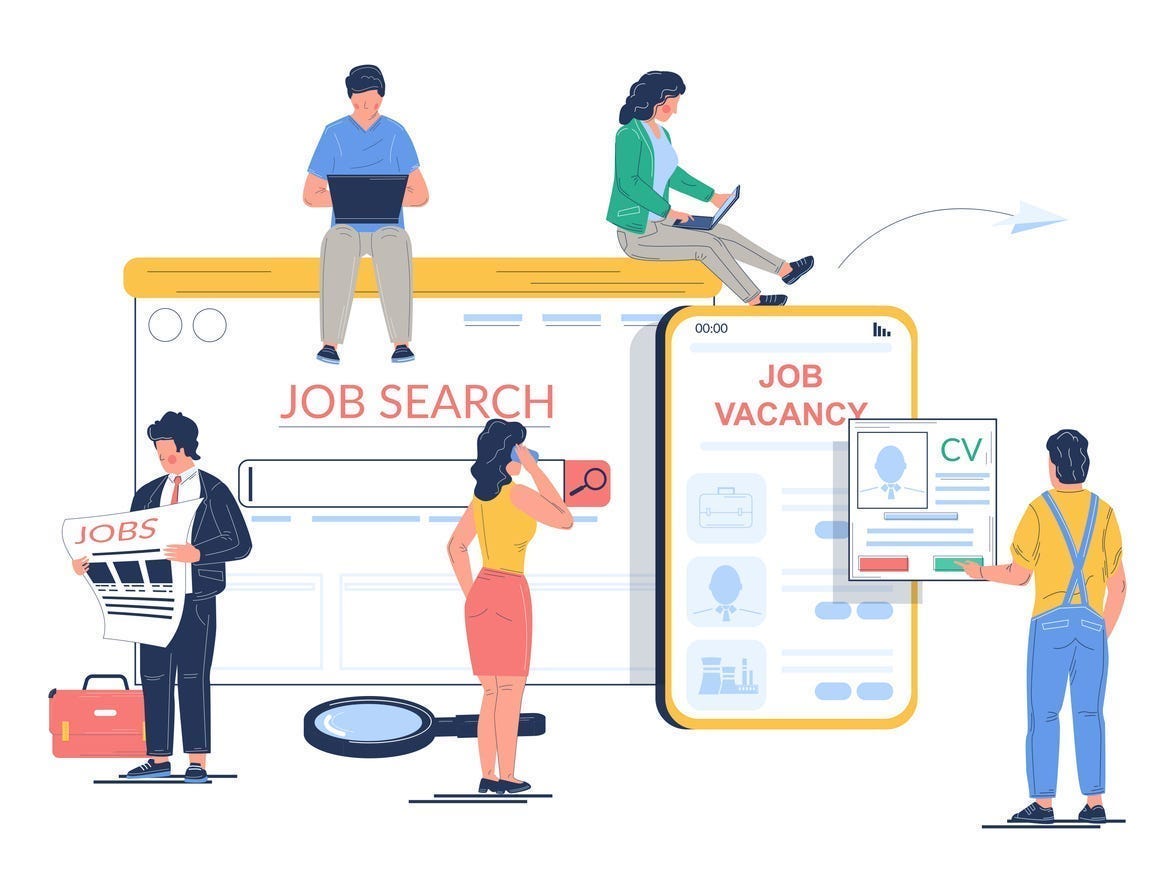Working two full-time jobs used to be a virtual impossibility. Because the majority of workers performed their duties at a physical work site, holding down two jobs meant putting in at least 80 hours a week—tough to pull off if you also need to commute, eat, sleep, and attend to any responsibilities outside of work.
But the world of work is changing. As more employers embrace telecommuting and full-time remote jobs, another trend has emerged: the full-time double-timer. For obvious reasons, it’s hard to come by accurate stats on just how many people are working two full-time jobs. But it’s safe to say that the practice is on the rise, with Resume Builder reporting that 37% of surveyed full-time remote workers have a second full-time job.
So, can you—and should you—join them? Here’s what you need to consider.
Are You Breaking the Rules?
If you have an employment contract or employee handbook, now’s the time to consult them. Many companies have rules in place to prohibit moonlighting (otherwise known as “working two jobs”). You’ll want to make sure you understand corporate policy, especially if you’ve signed a contract stating that you’ll adhere to it.
But even if your employer doesn’t specifically forbid moonlighting, you can still get in trouble for it. Look for contract language restricting your ability to work for competitors, use the company’s intellectual property for another organization, or similar.
What Are Your Other Responsibilities?
Even if you’re young and single and willing to put your hobbies and friendships on a shelf for a while, you have responsibilities outside of work. Can you take care of yourself and maintain your health and happiness if you hold two jobs?
Some people don’t need a lot of sleep. Others may be willing to multitask by eating at their desk or exercising while they work by incorporating a treadmill desk. But keep in mind that even those folks need some downtime eventually. Be honest with yourself about what you can handle.
What Are Your Goals?
Think about why you want to work two full-time jobs. Maybe you’re hoping to pay down debt, build up savings, or get a head start on a second career. Whatever your reasons, it’s important to be clear about them. Knowing why you’re embarking on this experiment will help you define success in the short- and long-term.
What Is the Long-Term Plan?
And speaking of the long-term, know what that looks like. For most people, working 80-plus hours a week won’t work as a permanent career choice. Even if you love what you do, you are likely to want other things in your life besides work at some point.
In fact, loving what you do may be the biggest reason to make the two-job lifestyle a short-term choice. In the long run, you might want to get promoted, start your own business, or otherwise focus your professional life on a single track.
What Are the Alternatives?
If you’ve read this far and you’re having second thoughts, know that you don’t have to throw out your plans altogether. There are other ways to earn more money, gain experience, or try new professional paths without taking on a second full-time job:
Freelance or contract work: Earn extra money while gaining valuable work experience…without committing to another 40-hour-per-week job.
Education or internships: Train for a job that pays more and fits better with your personal and professional goals.
Negotiate salary or find a new job: Earn more without doubling your workload by negotiating a raise or looking for a better paying role.
How Will You Make This Work?
Ready to add another full-time job to your schedule? Create a plan to make it work. Figure out how you’ll manage your workload, time, and interactions with two sets of bosses.
Remember that you won’t have a lot of energy to spare, so create a system that will work even when you’re tired or otherwise feeling unproductive. For example, you might try working on different laptops, especially if they’re supplied by your employers, so that you don’t accidentally message one boss about the other boss’s priorities.
Above all, be discreet. Even if you’ve approved your plan with both companies, you won’t want to emphasize your dual commitments. And should you decide to keep things under wraps, remember: a secret that involves two people isn’t a secret. Don’t tell any of your colleagues anything that you don’t want to get back to the rest of your team.
Our Favorite Tools & Tips
Find Networking Contacts: CareerOneStop's Professional Association Finder lists national professional and industry associations you can tap to find industry news, trends, advice, and networking contacts.
Can You Leave a Job Off Your Resume? Do you need to include all the jobs you've ever had on your resume? The short answer is that you don't. The longer answer is that if you don't include every position you've held, you need to be prepared to explain to prospective employers why not.
Free LinkedIn Learning Courses: Linkedin Learning and Microsoft are offering new courses and professional certificates to help you learn the skills you need to get hired for in-demand tech and tech-enabled jobs. The courses are free through 2025.
News & Noteworthy
From TV Reporter to Truck Driver: A midlife career change can be challenging, especially when you’re considered overqualified for many of the jobs you’re interested in. But, as Cowboy State Daily reports, “...with persistence and an open mind, they can have a happy ending.”
Job Security vs. Money: HR Brew notes that a study published by the Society of Human Resource Management (SHRM) and Handshake reports that 69% of students and recent college graduates said job security is most important when considering a new role. That's followed by professional development opportunities, retirement benefits, flexibility, and salary. Employers expected to see salary, flexibility, remote and hybrid work, and professional development at the top of the list.
Best Internships for 2025:Vault ranks the leading internship programs, as well as the top internship programs in various industries in diversity, quality of life, and overall best to work for. Here are the best internships in each category for 2025.
Sponsored by Remotive
When you’re looking for a 100% remote job, Remotive can expedite your search, and the basic version (2000+ jobs) is free. Learn more about how Remotive can accelerate your job search, and sign up for the Remotive Accelerator to access over 30,000 listings and the Slack community for a one-time fee.
Note: We may receive a small commission if you sign up using this link.







Hi Jen and Alison, I would love to know about resources as a new freelancer. This may not be in your scope with Job Hopper, which I'd understand, but I have been out of full-time work and now I'm making a go at self-employment. With your expertise, I'd love to know about communities or sites that would be good support for people like me. Thanks ladies!